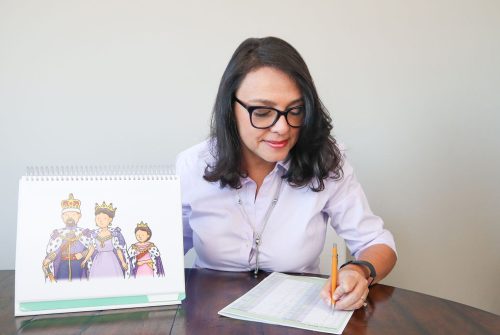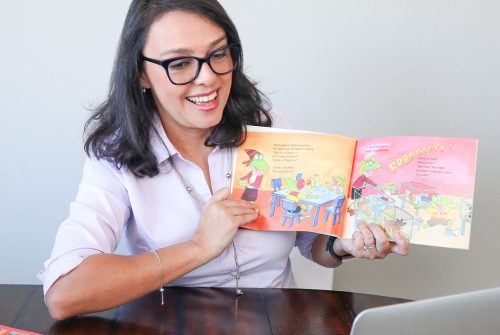Frequently Asked Questions (FAQ's)
I’m sure you have questions so this page is dedicated to the most common questions we receive. Read through the questions and answers below.
Should I be concerned about my child being a late talker?

By 24 months a toddler should be saying at least 50 words and starting to put 2 words together. Some children who are not yet saying 50 words at 24 months are considered to be “late bloomers”, meaning that they are late talkers who will catch up on their own. However, research shows that half of the late-talker population will not catch up and will require intervention. Therefore, it is recommended that you do not wait until the child is a little older to see if he/she will catch up. We can help sort this out by looking at the social communication development in the early months.
Should I be concerned about my child having a delay in social communication?
Should I be concerned about my child having a delay in social communication?
Before speaking his/her first words, your child is already communicating wants and needs, sharing ideas and feelings through gestures, facial expressions, sounds, and movement. These are the social communication milestones that will predict speech and language development, play, and academic success.
Children showing delays in social communication may be at risk for autism and other developmental disorders. Finding out whether or not there is a problem in the early stages will put your mind at ease and help you be confident about what steps to take.

How can you help my child with communication?
Let’s begin by discovering what the issue is.
First, I will conduct a comprehensive evaluation to accurately understand what the problem is and how severe it is. Your child may be having difficulty understanding language; expressing language to communicate wants and needs and sharing ideas; interacting with peers or family members. Also, your child’s speech may be difficult to understand. Once we have a good understanding of the problem, I will design a plan of intervention based on the results of the evaluation. I will take into consideration the child’s speech and language strengths and weaknesses, general interests, academic needs, and your family priorities.

During our speech therapy sessions, my number one goal is to develop a trusting relationship with the child so that he/she remains engaged and invested in learning. Therefore, I will always follow your child’s interests and motivating activities, while focusing on the specific speech/language goals. And this can take different forms depending on the age of your child.
What Speech-Language problems do you treat?

1. Speech Sound Disorders
- Articulation disorder
- Phonological disorder
- Childhood Apraxia of Speech
- Oral Motor issues for feeding and speech
2. Receptive and Expressive Language disorder
3. Social Pragmatic Communication disorder
4. Central Auditory Processing disorder
5. Dyslexia
Do you accept insurance?
Unfortunately, at the moment I do not work with any particular insurance plan. However, if your insurance plan reimburses out-of-network services, I will provide all the necessary paperwork you may need to receive that reimbursement.
What is the relation between DIR/Floortime® therapy and Speech-Language Therapy?
DIR/Floortime® is one developmental approach to intervention that Speech-Language Pathologists like me may utilize as part of their practice of Speech Therapy. Professionals such as Occupation Therapists, Physical Therapists, Mental Health practitioners, Special Educators, etc. may also incorporate the DIR/Floortime® model in their respective practices. D (Developmental) I (Individual differences) R (Relationship) is the framework by which certified clinicians use when evaluating and designing an intervention plan. Floortime is the therapy technique used to achieve the goals that were delineated within their discipline.


How do I schedule an evaluation/therapy appointment?
You may call (305) 343 8177 or send an email to erika@communikidsmiami.com to schedule an appointment. If you plan to ask your insurance company for reimbursement for out-of-network services, you may need a prescription from your doctor for Speech Evaluation/Treatment prior to the date of the evaluation.


